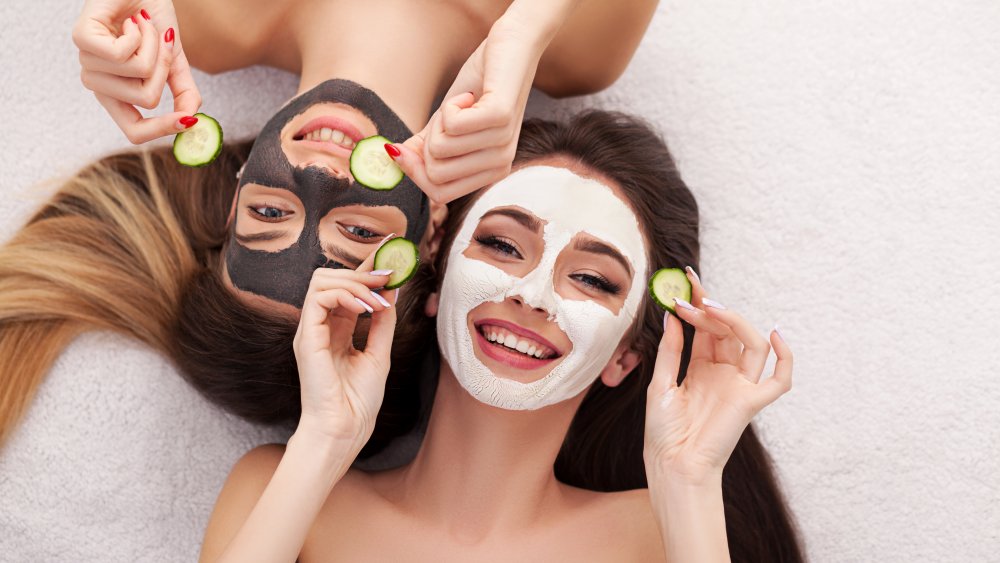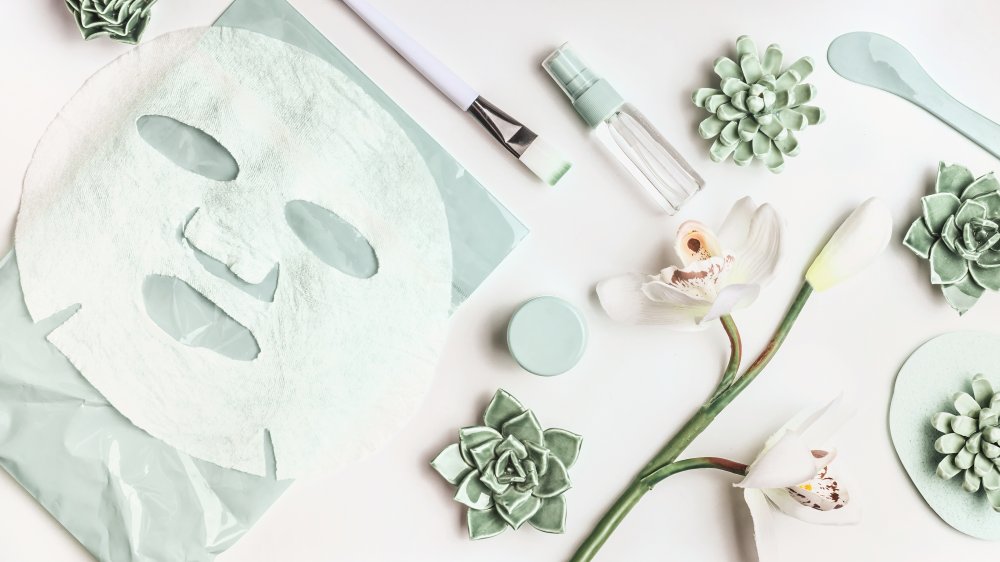Do Face Masks Really Help Your Skin?
If you're in the mood for a little self-love (and we seem to need a lot of that these days), breaking out our favourite face mask, or making one with ingredients like honey, avocado, or orange and banana may be just the thing to brighten your skin (via Marie Claire). But do they work? It depends, says dermatologists like Shilpi Khertarpal, who tells Cleveland Clinic that: "When it comes to skin care I tell all my patients that your priority should be cleansing, daily sunscreen and daily moisturizing. But a face mask can be complementary to a good skin care routine."
Why masks and not just any old cream or lotion? Experts told Bustle that masks have something extra to help them get the job done. "Many masks contain butylene glycol, which acts as a delivery agent and solvent, and allows your skin to absorb more of the other ingredients," David Lortscher, the CEO and Founder of Curology, a boutique skincare company, says. That's important, because our skin's outer layer, also called the epidermis, not only protects us from the outside world, it also makes it a challenge for skin creams to reach the deeper areas they are meant target.
Sheet and cream masks do different things
Khetarapal also told Cleveland Clinic that sheet masks are good if your skin is either sensitive or inflamed, because the paper allows for moisturizer to be distributed across all the areas of your face. Cream masks deal with specific complaints like acne or wrinkles. Penn Medicine reports that face masks can also help deal with redness or rosacea, or dark spots. But no matter what you need your masks for, Dr. Neal Schultz, NYC dermatologist and creator of BeautyRx told Bustle that it's important to look for three ingredients when you're buying face masks: exfoliants that can remove dead cells, an antioxidant like Vitamin C which helps to prevent premature ageing, and peptides, which can help your skin produce more collagen.
Khetarapal revealed to Cleveland Clinic that DIY masks have benefits too. For instance, milk and yoghurt masks have lactic acid, which can act as an exfoliant. Papaya has enzymes which can brighten your skin. Coffee can make your pores look smaller by drying your skin. But stay away from apple cider vinegar or lemon and lime juice, which might trigger an irritation. Before you do anything, Khetarapal says you need to test your DIY mask ingredients on a small part of your face to make sure your skin will be happy with it.

